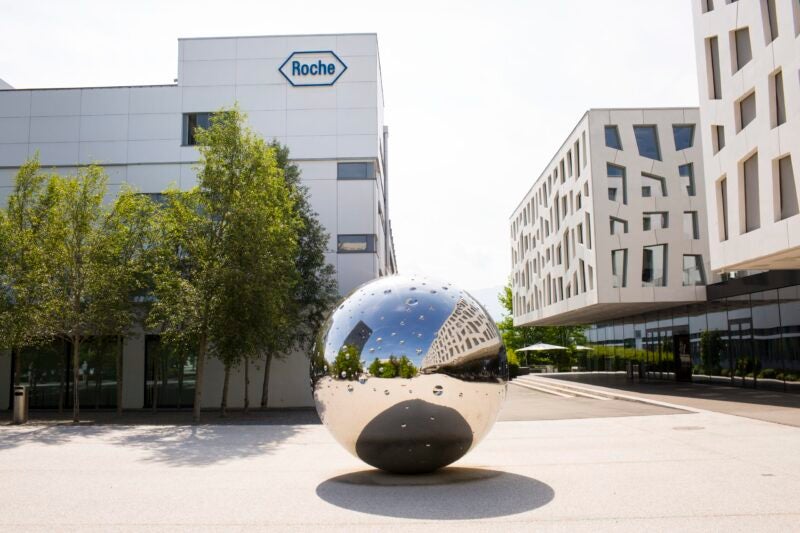
Roche has reported positive topline data from two Phase III clinical trials of a bispecific antibody, Vabysmo (faricimab), to treat macular oedema caused by branch and central retinal vein occlusion (BRVO and CRVO).
Named BALATON and COMINO, the multicentre, randomised, double-masked, international trials are designed to assess the safety and efficacy of Vabysmo versus aflibercept, given every four weeks.

Discover B2B Marketing That Performs
Combine business intelligence and editorial excellence to reach engaged professionals across 36 leading media platforms.
The variation from baseline in best-corrected visual acuity at 24 weeks is the primary endpoint of both trials.
According to the findings, both studies met primary endpoints.
Patients with macular oedema due to BRVO and CRVO who received Vabysmo for up to 24 weeks attained non-inferior visual acuity gains, versus those in the aflibercept arm.
The antibody also demonstrated the quick drying of retinal fluid from baseline through to week 24, as evaluated by a decline in central subfield thickness.

US Tariffs are shifting - will you react or anticipate?
Don’t let policy changes catch you off guard. Stay proactive with real-time data and expert analysis.
By GlobalDataThe treatment with Vabysmo was found to be well tolerated in both trials, with the safety profile in line with prior studies.
Vabysmo is an approved bispecific antibody for usage in the eye.
It acts on and hinders angiopoietin-2 (Ang-2) and vascular endothelial growth factor-A (VEGF-A), two disease pathways associated with various vision-threatening retinal ailments.
Roche Global Product Development head and chief medical officer Levi Garraway said: “These encouraging data demonstrate that Vabysmo could potentially provide a new treatment option for people living with retinal vein occlusion, a serious retinal vascular condition that can lead to irreversible vision impairment or vision loss.
“The results add to the extensive evidence supporting Vabysmo’s efficacy in treating multiple types of retinal conditions.”
In February last year, the company reported results from four Phase III trials where faricimab showed to offer non-inferior vision gains for treating diabetic macular oedema and neovascular, or ‘wet’ age-related macular degeneration.





